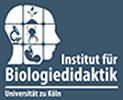Teacher-students' Barriers with Inquiry-Based Science Education
Rational and Theoretical Background
Inquiry-based science education (IBSE) attempts to parallelize pupils’ learning process with the process of scientific inquiry (Hof, 2011). Several studies revealed that IBSE is suitable to teach natural scientific contents as well as skills (Rocard et al., 2007). Additionally, studies draw similar conclusions with respect to scientific literacy, vocabulary knowledge, conceptual understandings, critical thinking and attitudes toward science (Anderson, 2002). Nevertheless, IBSE has been rarely adopted in many countries including German schools (S-TEAM, 2010).
Often barriers for teachers account for that lack (Anderson, 2002), with the result that even good teachers struggle to teach science as inquiry (Capps, Crawford, & Patel, 2011). For instance, Roehrig and Luft (2004) identified constraints that impact teachers’ enactment of inquiry-based instruction, such as content knowledge, teaching beliefs and concerns about management and students. In line, Anderson (2002) declared that “the task of preparing teachers for inquiry teaching is much bigger than the technical matters” (p. 8) and also that “it is important to understand the difficulties encountered in doing so (Inquiry Teaching)” (p.7).
More importantly, studies indicate, that several barriers and constraints could be ascribed to problems teacher-students are confronted with (e.g. Kang, Orgill, & Crippen, 2008). However as far as we are aware of, teacher-students’ barriers and problems with IBSE are not well examined yet.
Research Questions and Key Objectives
The aim of our research project is to identify and categorize problems teacher-students have with IBSE. To draw a holistic picture of these problems, we pursue following three research questions: What are the problems biology teacher-students have with IBSE i) on a subjective level, ii) on an objective level and iii) on a meta-cognitive level?
On each of these levels, we percolate and cluster existing problems to problem areas, so that each problem area consists of distinctive elements. Representing principal solvable problems, these elements may serve as a basement necessary for intervention ideas, further studies and better teacher education.
Design and Data Analysis
First of all, teacher-students pass an evaluated IBSE-seminar, with contents based on current references and an expert focus group. Likewise, students are obligated to conceptualize and accomplish an inquiry-based lesson to conceive this teaching method comprehensively. For analysis, inquiry-based lessons are video-recorded (classroom as well as group work).
Thereafter, open questionnaires reveal problems perceived subjectively (cf. research question i). Using deductive and inductive categories, survey data passes the qualitative content analysis with the aid of MAXQDA. Objectively perceived problems (cf. research question ii) are gathered by two observers working independently and using the IBSE Diagnostic Tool (Borda Carulla, 2012) while analyzing the recorded inquiry-based lessons. In order to identify further problems on a meta-cognitive level (cf. research question iii), teacher-students analyze their own accomplished lessons using an open questionnaire. Again, data is entered in MAXQDA and analyzed qualitatively.
During qualitative analysis, data is disassembled to coding units. Once all categories are analyzed and identified, coding units are reassembled to these categories. As a result, each category is assessed quantitatively.
Research findings & Conclusions
We are sorry, but findings as well as conclusions are in review-process. As soon as papers get published, you may find the whole article among the column "Publikationen".
References
Anderson, R. D. (2002). Reforming Science Teaching: What Research says about Inquiry. Journal of Science Teacher Education, 13(1), 1–12.
Borda Carulla, S. (2012, April). Developing a tool for evaluating inquiry-based science education (IBSE) in Europe: Building a bridge between research and practice. Bridging the gap between education research and practice, Leicester. Retrieved from http://istic-unesco.org/index.php?option=com_docman&task=doc_download&gid=376&Itemid=243
Capps, D. K., Crawford, B. A., & Patel, M. R. (2011, September). Inquiry-based professional development: What does it take to support teachers in learning about inquiry and nature of science? ESERA 2011, Lyon, France.
Hof, S. (2011). Wissenschaftsmethodischer Kompetenzerwerb durch Forschendes Lernen: Entwicklung und Evaluation einer Interventionsstudie. Kassel: Kassel University Press.
Kang, N.-H., Orgill, M., & Crippen, K. J. (2008). Understanding Teachers’ Conceptions of Classroom Inquiry With a Teaching Scenario Survey Instrument. Journal of Science Teacher Education, 19(4), 337–354. doi:10.1007/s10972-008-9097-4
Morine-Dershimer, G., & Kent, T. (2002). The Complex Nature and Sources of Teachers’ Pedagogical Knowledge. In J. Gess-Newsome & N. G. Lederman (Eds.), Science & Technology Education Library. Examining Pedagogical Content Knowledge (pp. 21–50). Dordrecht: Kluwer Academic Publishers.
Rocard, M., Csermely, P., Jorde, D., Lenzen, D., Walberg-Henriksson, H., & Hemmo, V. (2007). Science education now: A renewed pedagogy for the future of Europe. Luxembourg: Office for Official Publications of the European Communities.
Roehrig, G. H., & Luft, J. A. (2004). Constraints experienced by beginning secondary science teachers in implementing scientific inquiry lessons. International Journal of Science Education, 26(1), 3–24. doi:10.1080/0950069022000070261
S-TEAM (Ed.). (2010). Preliminary Report: The State of Inquiry-Based Science Teaching in Europe. Trondheim, Norway: NTNU.
